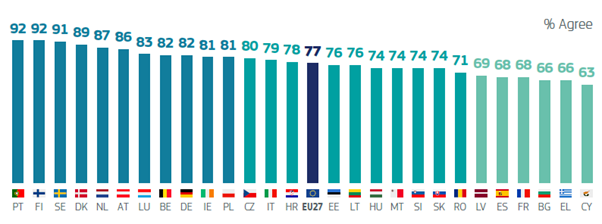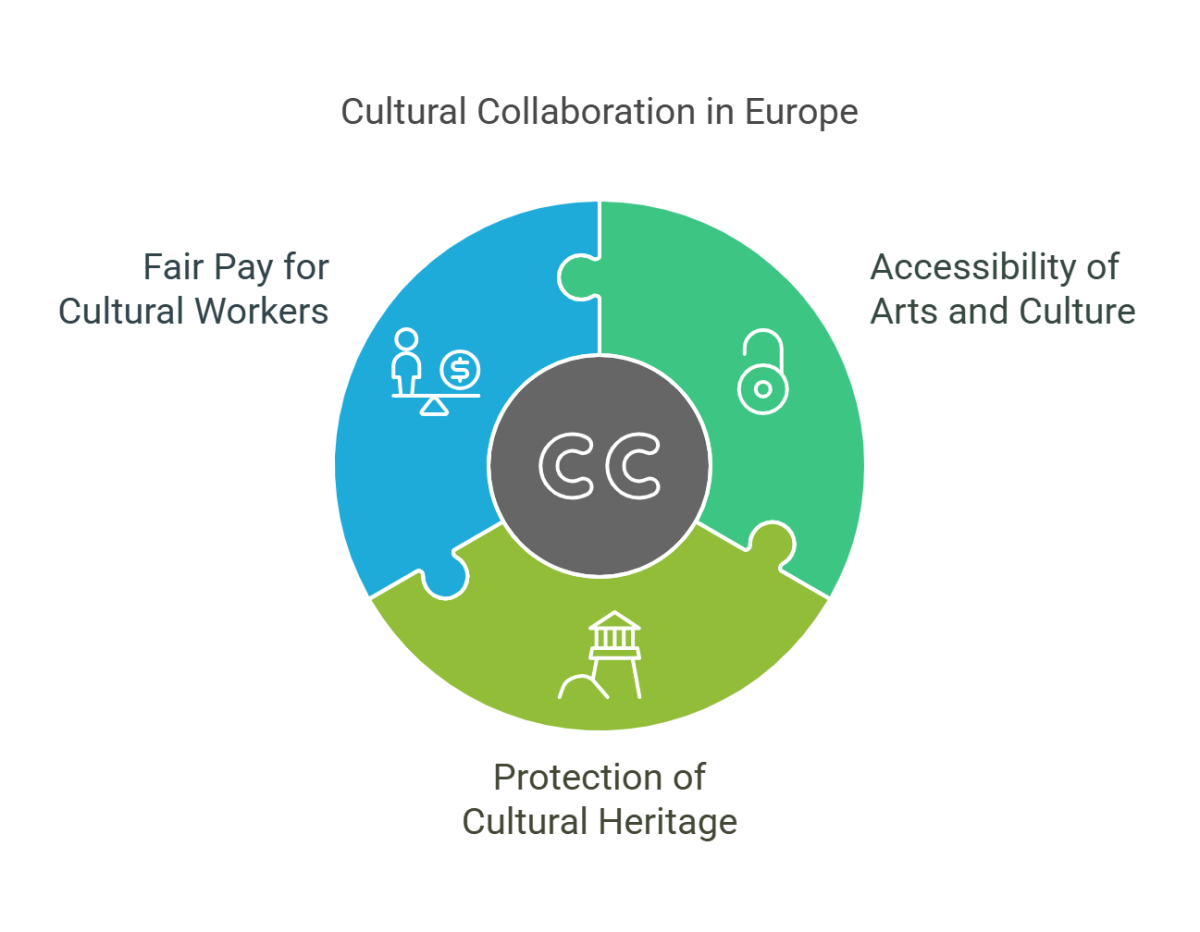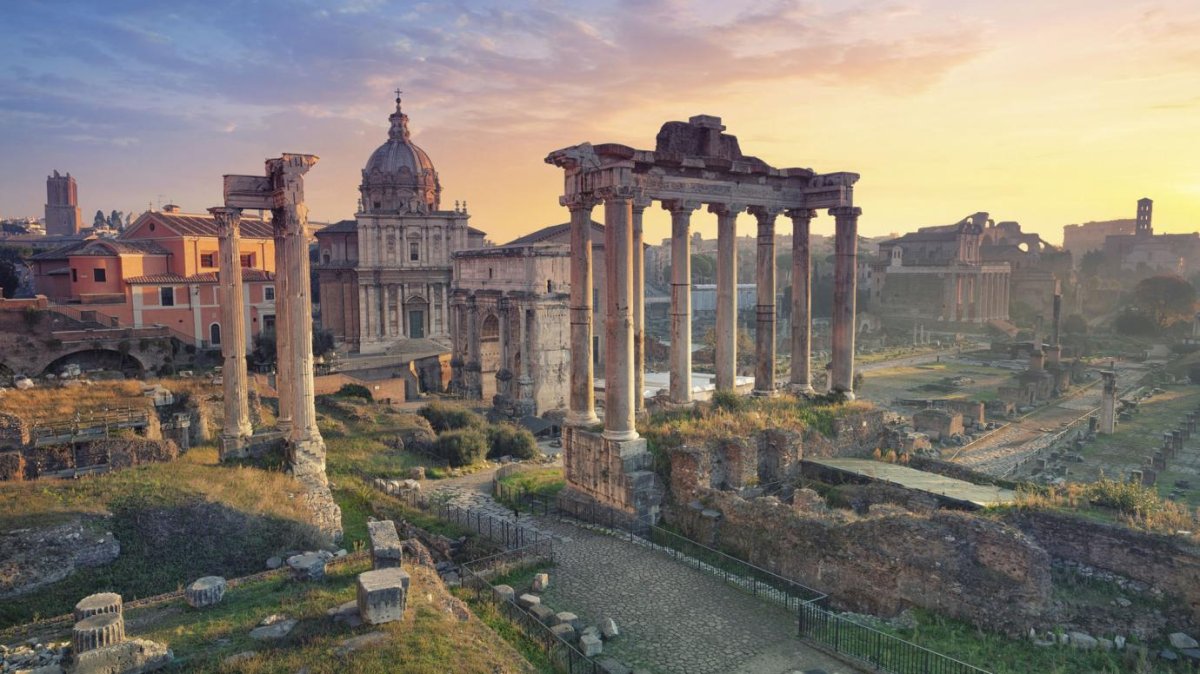This wide-ranging survey took place across February and March, with 26,319 participants, and explores how Europeans feel about a wide range of topics relating to cultural policy, culture in their daily lives, and culture’s place in society. The results provide timely insights as we continue our work on shaping the future of EU Cultural policy in the context of the upcoming Culture Compass and the future MFF. Some interesting findings, at a glance:
Culture as a unifying force
87% of Europeans believe culture and cultural exchange should have a very important place in the EU to foster a sense of European identity. When asked what most strongly fosters a sense of community among EU citizens the top 5 results were:
· Artistic freedom: 88% say artistic freedom is important to them, but perceptions of whether artists are free from government or non-government pressure vary greatly among member states, as seen in the graph below
· Generative AI and artists: Less than half of people (48%) say they can reliably distinguish AI-generated from human-made art (!) but 4 out of 5 people say they prefer human-made art. 73% express concern about the impact of generative AI on artists’ livelihoods.

· Economy and working conditions: 6% of people say they work in arts/culture – telling us that perhaps more people identify with working in culture than are captured in official statistics. 86% say culture is critical for the economy of the place where they live, but only half believe artists have fair remuneration and working conditions.
· Participation is rising: 49% of Europeans engaged in artistic activities in the past year — an increase of one third from 2013 when the figure was 37%. This is great news, because almost 9 in 10 respondents (87%) agreed that participating in a cultural activity or attending artistic and cultural events or festivals can make them feel better either mentally, physically, or emotionally.
· Cultural heritage matters: 86% consider cultural heritage important for Europe, and 79% of Europeans say that living close to places related to Europe's cultural heritage can give people a sense of belonging to Europe – an increase of 12.85% from 2017 when the figure was 70%.

Citizens support deeper cooperation between the EU and Member States, and say their top priorities are:
o making the arts more accessible
o protecting cultural heritage sites during wars, natural disasters or climate change
o ensuring artists and cultural workers have fair pay and good working conditions
o protecting artistic freedom and cultural rights
o helping artists and cultural workers develop new skills
G.Micallef: Citizens perceptions will shape the Culture Compass

"These results show how deeply culture matters to Europeans, not only as part of their identity but as a shared foundation for Europe’s future" said Glenn Micallef, Commissioner for Intergenerational Fairness, Youth, Culture and Sport in a written statement. "Citizens are clear about their expectations: fair pay for artists, protection of artistic freedom and better access to culture. This feedback will directly shape the Culture Compass for Europe, which I will present later this year".
Read the full report and check country documents at: Europeans’ attitudes towards culture












